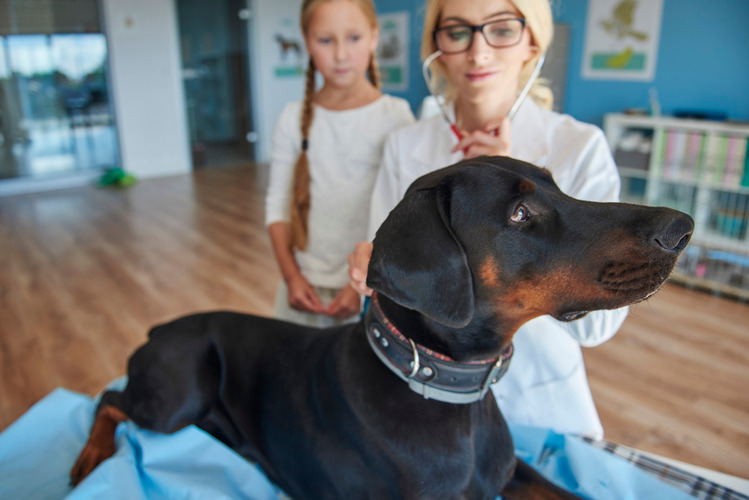The Doberman Pinscher stands out for its intelligence, elegance, and athletic build—but this powerful breed also comes with unique health needs. Whether you’re a new owner or a seasoned handler, staying ahead of potential issues is essential. These Top 7 Health Tips offer focused guidance to help your Doberman thrive in 2025 and beyond.
1. Take Heart Health Seriously—Early and Often
Dobermans are genetically predisposed to dilated cardiomyopathy (DCM), a condition where the heart becomes enlarged and weakened. Because this disease often progresses silently, annual heart screenings should start as early as age two. Include echocardiograms and Holter monitoring in your wellness routine. Among our list, proactive heart monitoring ranks highest for early detection and better outcomes.
2. Test for von Willebrand’s Disease Before It’s Too Late
This inherited blood-clotting disorder is particularly common in Dobermans and can lead to serious complications during surgeries or even minor injuries. Ask your vet to include von Willebrand’s testing in your dog’s genetic health panel. Understanding this condition could prevent a life-threatening situation in the future.
3. Fuel Performance with a Doberman-Specific Diet
Lean, muscular, and constantly on the move, Dobermans need a high-protein, balanced diet that supports joint, heart, and coat health. Choose food formulas with taurine, L-carnitine, and omega-3 fatty acids, and avoid excessive carbohydrates. Keeping your Doberman at a healthy weight reduces stress on joints and lowers the risk of developing metabolic diseases.
4. Challenge the Mind and Body Every Day
Dobermans thrive on activity, both mental and physical. Long walks, structured play, obedience training, and puzzle games all help prevent anxiety and destructive behavior. A bored Doberman is often an unhappy one. Building a routine that channels their energy constructively and keeps their mind sharp is very important for their overall well-being.
5. Support the Spine—Watch for Signs of Wobbler Syndrome
Cervical Vertebral Instability (CVI), or Wobbler Syndrome, is another condition Dobermans are prone to. It affects the neck and spine, leading to unsteady movement and possible nerve damage. Avoid excessive jumping or rough play, and always use a harness rather than a collar. This can help reduce stress on their delicate cervical vertebrae.
6. Stay on Top of Teeth and Ears
Dobermans are more likely to develop dental issues and ear infections than many other breeds. Weekly tooth brushing and monthly ear cleaning go a long way in preventing these common problems. Use gentle, vet-approved products, and make dental checks part of your regular vet visits. Good hygiene plays a bigger role in longevity than most people realize.
7. Don’t Ignore Subtle Behavioral Changes
Dobermans tend to be stoic when something’s wrong. A slight change in energy levels, appetite, or clinginess may be their way of telling you something’s off. As the final entry in our list, this reminder emphasizes the value of paying attention to your dog’s emotional and physical cues. Early intervention is key to long-term wellness.
With targeted care and an understanding of breed-specific needs, your Doberman Pinscher can stay happy, fit, and strong for years to come. These Top 7 Health Tips are not just recommendations—they’re a roadmap to a thriving, well-balanced companion.

